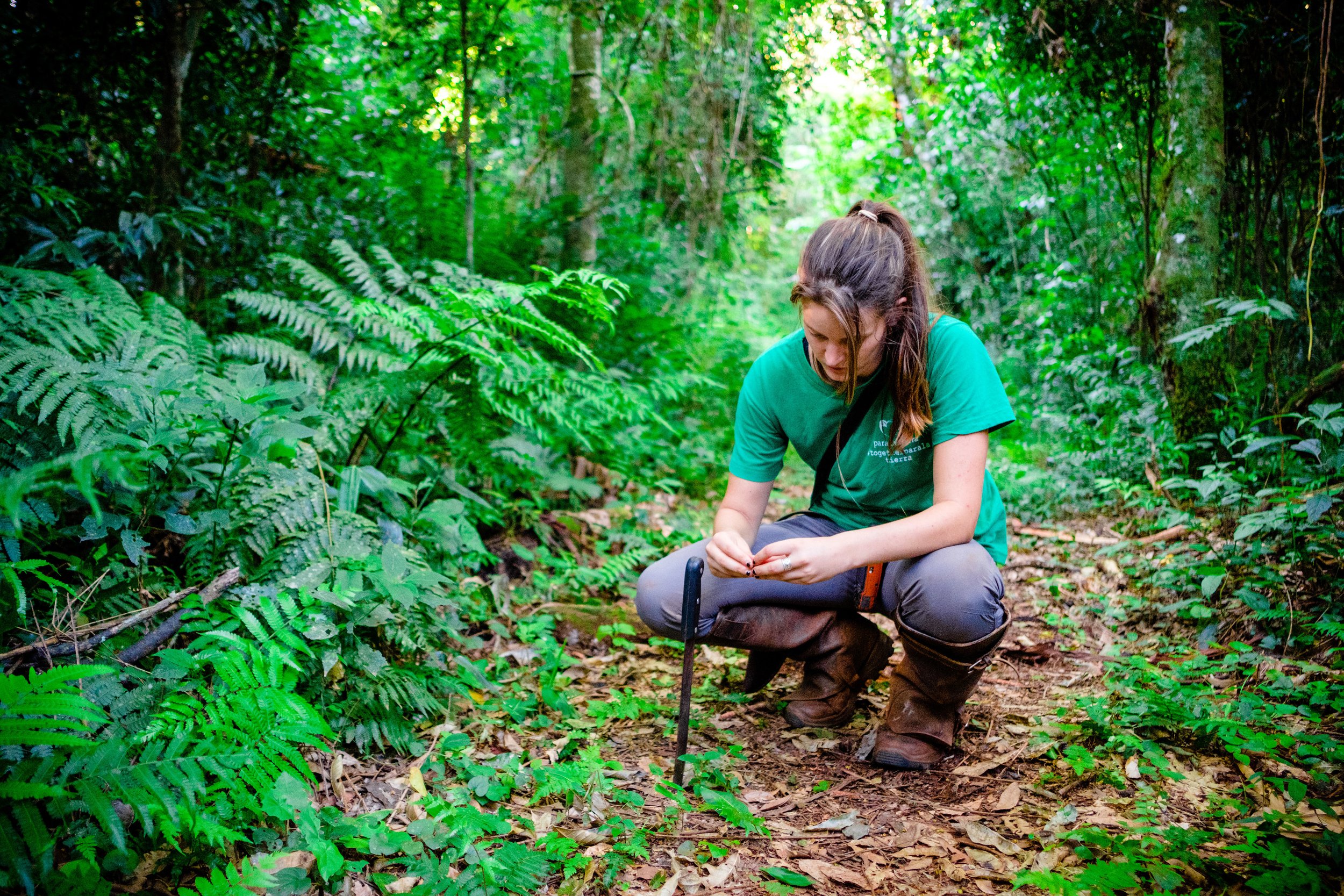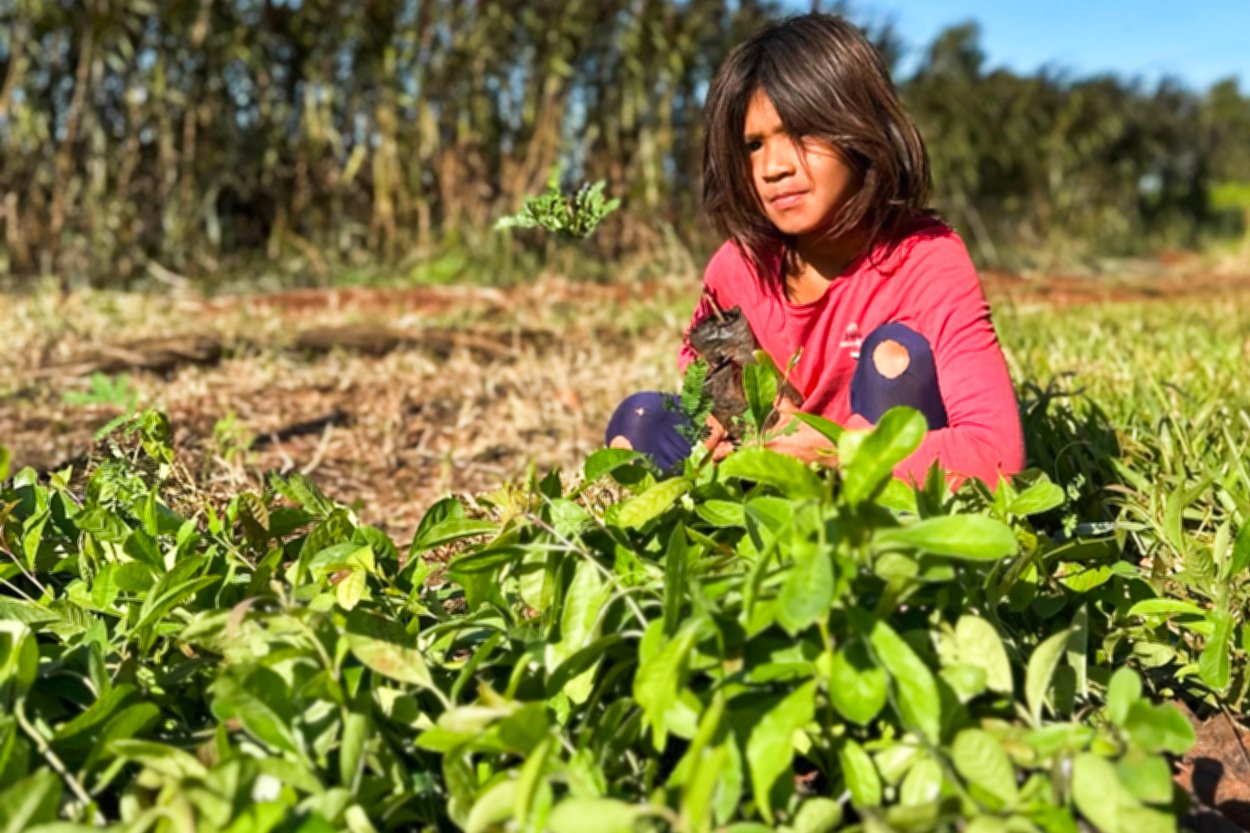30 hours of video lectures, readings, and assignments, Led By DR. Rebecca Smith, Paraguay’s leading Primatologist
Para La Tierra’s Primatology and Conservation Online course will provide you with a broad understanding of the order primates and primate behaviour, an introduction to different field techniques and how they can be applied to different studies, how to design a successful field project, and different aspects of primate conservation.
The course consists of four modules, taught through video lectures that you can work through at your own pace. Each module has a recommended reading list and includes a short exam to evaluate progress.
The course curriculum
Module 1: INTRODUCTION TO PRIMATES
This module focuses on primate taxonomy: From great apes to leaping lemurs, primates are spread across the tropics of the world. Before we dive into ecology and behaviour of individual species, we’ll examine what makes primates so special. On completion, you’ll understand what sets them apart from other mammals and the incredible diversity within this order. Be inspired to consider a career in primatology.
Lecture 1 – Primate taxonomy
Lecture 2 – Apes
Lecture 3 – Asian and African monkeys
Lecture 4 – Central and South American monkeys
Lecture 5 – Strepsirrhines
Module 2: PRIMATE BEHAVIOUR AND ETHOLOGY
Our shared ancestry with primates makes it easy for us to connect with their expressive faces. But are our empathetic reactions misleading? Could a grimace be mistaken for a smile? This module looks at the behavioural plasticity of primates, their social systems, feeding strategies, reproductive behaviour and paternal care. By the end of this module, you might not speak ‘monkey’, but you’ll certainly understand it!
Lecture 1 – Primate sociality
Lecture 2 – Primate diets
Lecture 3 – Social learning and culture
Lecture 4 – Primate communication
Lecture 5 – Population biology
Lecture 6 – Community ecology
Module 3: FIELD RESEARCH STUDIES
To really understand primates, their behaviour and ecology, and the papers published on them, you need a firm grasp of the methods used to collect data on this fascinating group. This module lets you choose your own study topic, design a methodology, and then write your hypothesis for what you think you would find.
If you fall in love with your topic, why not sign up for the PLT primatology field course or a primatology internship, and get into the forest with Rebecca Smith?
Lecture 1 – Designing a behavioural study
Lecture 2 – Primate home ranges
Lecture 3 – Census and survey methods
Lecture 4 – Non-invasive biological sampling
Lecture 5 – Field experiments
Lecture 6 – Habitat surveys
Module 4: PRIMATE CONSERVATION
Palm oil. Deforestation. The bushmeat and pet trades. What can conservationists do to combat the myriad of problems facing wild primates as we work to save species across the planet? 60% of primate species are threatened with extinction, and that number is increasing. In this module, we'll focus not just on the threats, but also the amazing initiatives led by inspiring primatologists to protect primates and their habitats. If we can work on these solutions together, we will have the chance to save these species.
Lecture 1 – Ethnoprimatology and ethic
Lecture 2 – Environmental education in primatology
Lecture 3 – Primates in trade
Lecture 4 – In-situ and ex-situ conservation
Course instructor
Dr. Rebecca Smith
PARA LA TIERRA’S EXECUTIVE DIRECTOR, PRIMATOLOGIST, NATIONAL GEOGRAPHIC EXPLORER
“There’s something magical about being in the field, sitting on the forest floor, witnessing the behaviour of a wild primate, potentially a behaviour that no one has observed before. In those moments, I know I’m in the right place, doing the right thing. Through this course, I want to share with you the beautiful world of primates. Hopefully you’ll join me in my fight to protect these vulnerable species.”
Course details
Cost: $324.99
Access to our online course materials
Course evaluations
One-to-one live sessions with course instructor
Access to the primatology student forum
Certificate and transcripts on completion
Professional reference on request on completion
Passwords: Each module has a password. We’ll send you the password for Module 1 when you sign up for the course. Upon completion of one module, we’ll send you the password for the next one.
Assessments: Each part of the course includes questions for you to answer before you proceed to the next part. Your answers to the questions will help the course instructor prepare your assessment.
Technical support: If you have problems accessing the course content, get in touch with us at support@paralatierra.org








